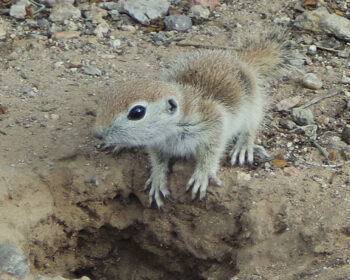News & Updates
The Intersection of Nature & Well-Being


NOTE: This is the first of several collaborative posts by Leave No Trace and Mental Health Colorado. We will be hosting Dr. Vincent Atchity, President & CEO of Mental Health Colorado, on March 9th, 2023 for a special webinar on this topic. Register here.
I’d like to travel back to a crystal clear memory from 2013. I was attending the University of Arizona’s School of Natural Resources and the Environment, working to become a wildlife biologist – or, at least, that’s what I’d say when asked about what was going on in my life at that time.
Really, though, I was struggling mightily with the weight of an obsessive-compulsive disorder (OCD) breakdown. This fogged the time I spent with friends, the time I spent in class, the time I spent alone. One day was especially full of looping obsessional thought, so I skipped out early to go home and rest. As I walked back to my apartment in 100+ degree weather, head down, I was finding no connection to anything within human society.
And then I saw a ground squirrel.

I’d just learned about this species in class, and had learned that these ground squirrels have developed resistance to rattlesnake venom. I thought to myself, “well, if this little guy can fight off a rattlesnake bite and survive, surely I can keep fighting too.” So, then and there, I turned around and went back to class.
It’s a small anecdote that doesn’t begin to cover my mental health journey, but it is indeed true – I look back at that win fondly, as it built towards many more. If you’re the type who finds energy and encouragement in the stories of an individual’s lived experiences, I encourage you to check out our partner Mental Health Colorado’s Stories page.
However, knowing some folks don’t respond as well to anecdotes. So, for those folks, here’s just some of the data showcasing how nature can help support mental health.
- Anxiety & Depression: A meta-analysis of several research studies published last year found that nature walks effectively improve mental health, with a noted decrease in both anxiety and depression. Another team has recently looked at shinrin-yoku, or forest bathing, and found time in nature helps activate the parasympathetic nervous system, which lowers heart rate and blood pressure and induces a calming effect.
- ADHD: Multiple studies by a team out of the University of Illinois at Urbana-Champaign have reported reductions in ADHD symptoms amongst children that spend a portion of every day in “green play,” regardless of location, income level, and other parameters. And, for adults, simply having a view of nature while working has been correlated with liking your job more, enjoying better health, and increased life satisfaction.
- Autism: Beyond a host of anecdotal evidence provided by just about every autism blog, a cross-university 2019 study found that exposure to nature in children on the autism spectrum provided moto-sensory, emotional, and social benefits.
- Insomnia: An analysis of over 400,000 participants found that, for each additional hour spent in natural daytime light, there was an association with less frequent tiredness, greater ease in getting up, fewer insomnia symptoms, and greater reported happiness.
It is not required to get out into the backcountry to experience these benefits. A BioScience study found significantly fewer mental health issues when contrasted to neighborhood vegetation cover.
So go on, get out there and find your ground squirrel.
Let’s protect and enjoy our natural world together
Get the latest in Leave No Trace eNews in your inbox so you can stay informed and involved.
